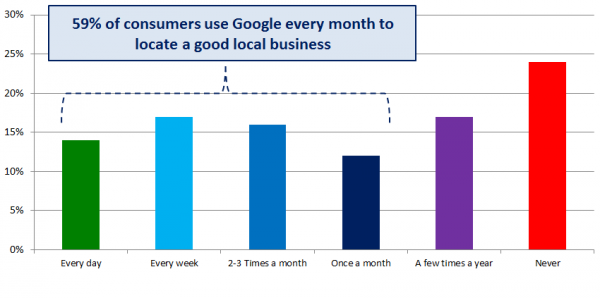When we meet with a business owner for the first time, one of the most common questions we are asked is "How do I secure new customers through the Internet?" The answer consists of 3 key factors:
1. High Search Engine Visibility - The large majority of searches for a business on the Internet start on a major search engine (Google, Yahoo, Bing). In order for a business to generate new customers from a search engine it must have a high amount of visibility on the first page of results (95% of search engine user activity comes from the first page of results). This involves, not only having the website of the business on the first page of results, but also a business blog, articles, videos, map listings, Facebook page, and listings on top directory sites (Citysearch, Manta, Yellowpages.com, Superpages.com, Yellowbook.com, MerchantCircle, etc.) that show up on the first page of search engine results for important keywords of the business.
2. Positive Online Reputation - When a potential new customer finds a business online they will often times want to dig a little deeper and make sure it's a reputable business before moving forward. For example, when someone types in "Dentist Boston, MA" on Google, and they find a dental practice in the results, they will often check out business ratings and reviews on Yelp, Facebook, and Google Places among others to make certain it's a credible and popular business.
3. The Website! - In our experience this is the most overlooked aspect to generating new business online. A lot of businesses are spending big chunks of their marketing budget on promoting their website online yet their website is not setup to generate new customers effectively. They are spending money to send new visitors to a website that does not answer the basic question "Why choose us?" In this highly competitive environment, where most businesses have several local competitors, it's imperative that a business's website not only describe its products and services but also tells the visitor why they should pick up the phone and call you. Does your website make it easy for new visitors to contact you? Does your website have special promotions for new customers? Does your website convey that you are a highly reputable business and an authoritative presence in the industry?
In today's world it takes a comprehensive and strategic approach for a business to grow from the Internet; A high amount of visibility where the market is searching for your type of business, a great reputation being displayed online, and a website that ties it all together - completing the process of obtaining new customers.
Our firm has successfully executed this approach for many businesses across all industries. Please call (978) 494-4119 for a free business consultation today.






